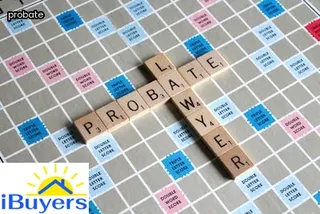Understanding the probate process in Tennessee can be complicated and overwhelming, especially when selling a home. Probate is a legal process that oversees the distribution of assets from a deceased person's estate.
In Tennessee, the court will appoint an executor to manage the estate after death and to ensure that creditors are paid and assets are distributed according to state law. The Tennessee probate code sets out specific rules regarding how property must be listed, appraised, and sold.
A real estate agent or attorney can help guide sellers through this process, advising them on what forms need to be filed with the court, how much time they have to sell the property, and how best to market it for sale. Understanding the probate process in Tennessee is key for sellers looking to get top dollar for their home.

There are various types of probate in Tennessee, each with its own distinct implications. If a person dies with a will, it is known as testate probate and the estate must go through the court system for approval.
Intestate probate occurs when a person dies without a will and the assets are distributed according to state law. Small estates may be eligible for an affidavit probate which doesn’t require going through the court system.
Additionally, if both spouses die simultaneously, then there is joint or mutual testamentary probate. All of these types of probate involve filing paperwork with the court, providing documentation to prove identity, publishing legal notices in newspapers and obtaining permission from the court to administer the estate.
Sellers should understand all of these processes before putting their home on the market so they can make sure everything is done correctly.
In Tennessee, probate is necessary when the deceased had assets that pass to beneficiaries through a will. Probate is a legal process in which the court determines if a will is valid and authorizes the executor to settle all of the estate's debts and distribute assets according to the decedent's wishes.
The probate court assigns an executor to administer the estate. In Tennessee, if there is no will, then the court appoints an administrator to manage the estate.
Both executors and administrators must prove that all creditors have been paid, all taxes are current, and all final distributions are made in accordance with state law. Probate can be time consuming and costly for beneficiaries since it typically involves filing paperwork with the court and paying attorney fees associated with administering the estate.
Understanding how probate works in Tennessee can help make selling a home during this process smoother and more efficient.

Tennessee's probate court system plays a critical role in the sale of a home. When an individual passes away and leaves behind real property in the state, their estate must go through probate court before it can be sold.
Probate is a process that generally involves determining who owns the decedent's assets and debts, settling any outstanding disputes or claims, filing paperwork with the court, and distributing money or property to heirs or beneficiaries. The process is overseen by a judge in Tennessee’s probate court and involves both attorneys and executors.
Before selling a home that has gone through probate in the state, it is important to understand what type of documents are required from the court system as well as how to correctly list the home for sale on the market. Additionally, there may be certain restrictions on how quickly a decedent's house can be sold after death so understanding those rules is essential.
By having a good grasp on all aspects of Tennessee's probate court system when selling a home, individuals can ensure that they meet all necessary requirements while also taking advantage of any special benefits available to them during this complex process.
When it comes to handling the passing of a loved one, understanding probate listings and selling a home in Tennessee can be difficult. It is important to take the time to research your options and make sure you understand what is involved in such an undertaking.
There are numerous legal issues that must be addressed when dealing with the estate, which can be complex and time consuming. It is also imperative to consider tax implications, as certain decisions may affect the estate’s liabilities.
Knowing what to expect ahead of time will help guide you through the process and prepare you for any potential pitfalls that may arise. In addition, having an experienced real estate agent to guide you through making decisions about selling a loved one's home can provide valuable insight and assistance.
Taking steps to protect your loved one's legacy will ensure their wishes are carried out properly and with respect. With a bit of knowledge and preparation, handling a loved one's passing in Tennessee can be made much easier.

When someone passes away in Tennessee without a will, the process of probate is set into motion. Probate is the legal process of recognizing and validating the deceased person’s assets by appointing an executor to manage them.
This includes paying off debts, such as mortgages and taxes, with any remaining assets distributed according to state law. The court-appointed executor must inventory all property owned by the deceased person, including real estate and personal possessions, that must be sold or transferred to heirs.
The executor must appraise the value of all assets and follow specific guidelines established by Tennessee law when selling real estate. Furthermore, they are responsible for filing appropriate tax documents on behalf of the deceased person's estate.
Navigating the deadlines and forms for probate and estate settlements in Tennessee can be a complicated process. It is important to understand what is involved in the probate process in order to determine if it applies to the real estate transaction you are undertaking.
When selling a home that is part of an estate, there are certain forms that must be completed, including but not limited to: the Tennessee Estate Tax Return Form, the Final Estate Accountings Form, and the Tennessee Inheritance Tax Return Form. These forms must be submitted along with a copy of the death certificate as well as other documents such as deeds and will certifications.
Additionally, all paperwork must be filed within 6 months of a person's passing or 12 months from when letters of administration were issued. Furthermore, failure to meet these deadlines can result in fines or other legal action taken against the seller or their representatives.
Probate listings often include specific instructions regarding how to complete these forms correctly and how long they take to process. It is essential for sellers to make sure that all paperwork is properly filled out and filed on time so that they can close on their sale quickly and easily.

When selling a home in Tennessee, it is important to understand the costs associated with probate listings and how they can affect the final sale price. Probate listings involve an executor of an estate settling a deceased individual’s assets and liabilities, including their property.
In Tennessee, probates need to be filed with the courts and fees will be assessed depending on the value of the estate. These fees may include court costs, filing fees, appraisals, attorney's fees, and other administrative costs.
Sellers should also consider any applicable inheritance taxes or liens that may be attached to the property as part of the probate process. It is recommended that sellers consult a qualified real estate professional who can help them accurately calculate all of these potential costs associated with selling a home through a probate listing in Tennessee.
Probate can be a complicated process, but understanding the basics of how probate works in Tennessee is essential for anyone considering selling a home. It is important to know that probate is the legal process of administering and distributing an estate after someone passes away.
In Tennessee, a personal representative is appointed to manage the estate and they are responsible for paying off debts, filing taxes, and distributing assets according to the will. The process may also require court approval.
Additionally, it's important to keep in mind that any heirs have certain rights when it comes to their inheritance. They may be able to contest the distribution of assets if they feel their rights were violated or if there was fraud involved in transferring ownership of the estate.
Probate law can vary significantly from state to state so it’s important to consult with an experienced attorney who specializes in Tennessee probate law before making any decisions about selling your home.

When it comes to selling a home in Tennessee, understanding probate listings and the associated process is essential. Traditional probate can be expensive and time consuming, especially for small estates, making it necessary to explore alternatives.
Intestate succession is one option that allows the deceased’s assets to pass directly to their surviving family members without going through the formal probate court process. Other options include having an affidavit of heirship signed or using a transfer-on-death deed.
Even if an estate is too large for informal methods of transferring ownership, there are still ways to avoid a lengthy and costly probate procedure. It may be possible to create a living trust which allows the property owner to transfer title while they are still alive and designate who will receive their property after they pass away.
Ultimately, with careful planning, it is possible for a small estate in Tennessee to bypass traditional probate proceedings and find more efficient methods of transferring ownership after death.
In Tennessee, preparing for and initiating the probate process can be a complicated process. It is important to understand the differences between probate listings and regular real estate listings in order to successfully navigate the probate process.
To properly prepare for the probate process in Tennessee, one must first understand how it works. Probate is a legal process that assigns ownership of a deceased person's assets to their heirs.
In order to initiate this process, an executor must be appointed by the court in order to manage the estate. This executor will be responsible for filing all necessary paperwork with the court and undertaking any other duties as required by law.
Once appointed, they will need to locate all assets owned by the decedent, such as real property or stocks and bonds. Additionally, they may need to hire a lawyer who specializes in probate law in order to provide guidance throughout the entire process.
After all of this has been accomplished, then the executor can begin handling all transactions related to selling a home or other real estate property owned by the deceased individual in Tennessee.

As the executor of a probate estate, you have many responsibilities related to selling a home in Tennessee. It is important to understand the probate process and how it relates to selling the property.
You must locate the most recent will or trust document and provide notice to all interested parties involved in the sale. You should also provide an inventory of all assets owned by the decedent, including real estate, and make sure all debts are paid before you can begin selling the home.
After any liens on the property have been satisfied, you then need to list it for sale and receive offers from buyers. Before deciding which offer is best for your situation, be aware that there may be certain restrictions imposed by state law regarding who can purchase a property through probate.
Ultimately, it is your responsibility as executor to ensure that you are fulfilling both your fiduciary duty and statutory obligations when selling the home.
When selling a home in Tennessee that is subject to probate, it is important to understand how creditors will be dealt with during the process. Generally speaking, creditors have certain rights when it comes to collecting money owed on a deceased person's estate.
In most cases, all valid debts must be paid before any assets are distributed to beneficiaries. Creditors may make claims against the estate or choose to file a lawsuit in order to obtain payment.
It is essential for an executor of an estate in Tennessee to notify all creditors who may have been involved with the decedent so that they can take appropriate action if necessary. Additionally, the executor should document all creditor actions and keep records of any payments made by the estate as part of any legal proceedings.
Finally, if there are any disputes concerning debts or payments, the executor should seek advice from a qualified attorney who is familiar with dealing with creditors during probate in Tennessee.

When the probate process is completed in Tennessee, it's important to understand how to distribute assets among heirs. The executor of the estate is responsible for ensuring that all debts and taxes are paid, and any remaining assets are dispersed according to the deceased person's will.
If there is no will, then the state laws of intestacy will determine how the assets are distributed. In Tennessee, a list of claimants must be created listing all individuals who may have an interest in the estate and their share of the total.
This list should include those specified in the will as well as anyone who has been legally adopted or has a claim against the estate. All claims must be verified by a court-appointed administrator before being paid out from the estate.
The executor is also required to file a final report with the court confirming that all debts and taxes have been paid, and all remaining assets have been distributed as outlined in either the will or state law. Knowing how to properly distribute assets after completion of Tennessee probate can help ensure that everything goes smoothly during this time.
Closing out an estate after Tennessee probate involves a number of steps. First, the executor must inventory and appraise the decedent's assets in accordance with local and state laws.
This includes real property, stocks, bonds, securities, bank accounts, personal property, vehicles and other assets that may be subject to probate. After all of the assets are identified and valued, creditors must be paid from estate funds or any available insurance proceeds.
Next, taxes must be calculated and paid on behalf of the deceased person's estate. If there is any remaining money or property left over after these payments have been made it will then be distributed to beneficiaries according to the terms specified in the will.
The final step is for the court to approve closing out the estate which may involve obtaining a release of liens or other documents as required by law. Understanding probate listings and selling a home in Tennessee requires knowledge of not only real estate laws but also those associated with closing out an estate after probate.
It is important for potential buyers to know what they are getting into before entering into a purchase agreement for real property that has gone through probate proceedings.

Understanding the tax implications of a probate listing in Tennessee is essential for any homeowner looking to make a sale. The law requires that the state be notified of the transfer of ownership and taxes will be assessed based on the fair market value of the property at the time of transfer.
The executor or administrator of an estate is required to file a final income tax return, and any taxes due must be paid from the proceeds of the sale. It's also important to know that Tennessee has an inheritance tax, which is imposed on beneficiaries who are not direct descendants or spouses of the deceased owner.
Additionally, sellers should be aware that capital gains taxes may apply if there are profits made on the sale, as well as other fees such as recording fees and deed stamps. Finally, homeowners will want to consult with their accountant or financial advisor prior to listing their home in order to understand all applicable taxes associated with selling a home in Tennessee.
Understanding the probate process in Tennessee is important when it comes to selling real property. Probate is a legal proceeding in which an individual's debts and assets are distributed after they pass away.
When making a sale through the probate process, there are several different steps that need to be taken. A petition must first be filed with the court in order to be appointed as an Executor of the estate.
The Executor must then locate all heirs and creditors, provide notice, and obtain court approval for any proposed transactions or sales. Heirs may challenge a will or other documents that were filed during the probate process, so it’s important to understand how these disputes work and how they can affect the sale of real property.
After all of this has been handled, you can begin marketing the property for sale and obtain a buyer once one is found. All contracts must also be approved by the court before closing on the sale, so it’s essential that you have an experienced attorney who can guide you through this process from start to finish.

Once the Tennessee probate process is complete and the estate of the deceased has been settled, it is important to manage bank accounts properly. This includes closing accounts that are not necessary, transferring funds from joint accounts, and setting up new accounts if necessary.
If there are funds remaining in the estate after all debts have been paid, these can be distributed to heirs according to the will. It is also important to consider any tax implications of inheriting money or a property in Tennessee.
Special rules apply when selling a home after probate and it is important to consult with a qualified real estate professional who understands the laws in this state. A probate lawyer can help review any terms related to inheritance or selling a home that may need clarification so that all parties involved can move forward with confidence.
When a person passes away in Tennessee, their estate must go through the probate process before any assets can be distributed. This includes life insurance policies, which can be difficult to access without a proper understanding of the probate court system.
It is important for those selling a home in Tennessee to understand how the state handles life insurance policies during probate proceedings as it could affect their ability to sell the property quickly. Obtaining an attorney who specializes in probate law can help navigate this complex process and ensure that all necessary documents are filed correctly and on time.
Knowing when and how to release any life insurance policies linked to the deceased’s estate is essential to efficiently completing the probate process and releasing the home for sale. The court will provide important information regarding what documents must be submitted and when they must be received, so having an experienced lawyer on hand helps ensure that everything is handled according to procedure.
Additionally, creditors have a right to receive notice of a pending probate sale, so notifying them as soon as possible is important in order to avoid any potential issues or delays down the line.

Transferring titles to vehicles through the Tennessee probate process can be a complex task. Understanding the probate listing is essential in order to properly sell a home in Tennessee.
The first step involves obtaining a court order from the county probate court or the county clerk's office, which allows an executor or administrator to transfer property title. This court order must include information such as the name of the deceased, an assignment of rights and/or duties to an executor or administrator, and authorization for them to transfer property titles.
Once this court order is obtained, it must be taken to the local Department of Motor Vehicles (DMV) office for further processing. The DMV will require proof of identity, a death certificate and other documents in order to complete the title transfer process.
It is important to ensure that all documents are filled out correctly and that all signatures are authenticated before submitting them. After all documents have been submitted and accepted, the DMV will provide an authorization letter which officially transfers the title from one owner to another.
With this letter in hand, owners can then take their vehicle for registration and obtain their new license plate number in Tennessee.
In Tennessee, not all estates require probate. Depending on the estate's value and other factors, there may be certain exemptions that do not require a probate process.
For example, if the total amount of assets in the estate is less than $50,000 or if all of the decedent's assets are held jointly with another person, then probate may not be required. In addition, certain types of trusts may also exempt an estate from having to go through probate.
If a will exists but it is deemed invalid, then the estate must go through the probate process. It is important to understand these regulations in order to properly assess the situation and determine whether or not a home must go through probate in order to be sold in Tennessee.

In Tennessee, it is not always necessary for a house to go through probate. However, understanding probate listings and how they can affect the sale of a home in Tennessee is important before buying or selling real estate.
The probate process involves the collection of assets and debts that are owned by a deceased person, as well as distributing them according to the will or state law. In some cases, real estate may be part of the estate, requiring probate proceedings before it can be sold.
However, in Tennessee, certain properties may not require full probate proceedings due to small estates or other exemptions. In such cases, the owner can sell their home without needing to go through full probate proceedings.
Therefore, if you are looking to buy or sell a home in Tennessee, it is important to understand the state’s laws and regulations regarding probate listings and transactions so you can make an informed decision about your property.
In Tennessee, probate is the legal process that takes place after someone dies and is responsible for ensuring their property is distributed properly. The length of time that any particular property stays in probate in Tennessee depends on a variety of factors, including the size and complexity of the estate and whether or not there are any challenges to the will.
Generally speaking, though, most properties stay in probate for around six months to a year. This is why it’s important to understand how long your property might stay in probate before you decide to sell your home.
Knowing this information can help you plan ahead when it comes to pricing and listing your home for sale as well as managing any potential delays between signing a contract and closing on the sale. If you’re considering selling a home in Tennessee, understanding the probate process can help ensure that your transaction goes as smoothly as possible.
In Tennessee, probate is a legal process used to settle the estate of a deceased person. It begins when the will is filed in court, and it involves identifying and collecting assets, paying debts and taxes, and distributing property according to the terms of the will.
During this process, interested parties may be able to purchase real property from the estate. The probate process can take many months or even years depending on how complicated it becomes.
Understanding how probate works in Tennessee is important for potential buyers who are looking to purchase a home from an estate. An experienced attorney can explain all of the details and help ensure that transactions are handled legally and efficiently throughout the process.
A: A Petition for Probate in Tennessee is a legal document that is filed with the court to initiate the probate process. The petition requests that the court appoint an executor or administrator to manage the estate of the deceased, identify beneficiaries of the estate, determine any liabilities, and transfer property to those beneficiaries according to their rights under Tennessee law. It also determines any joint tenancy or other special forms of ownership, such as trusts, which may be applicable in certain jurisdictions.
A: In Tennessee, if a married couple holds property as Tenants by the Entirety, and one of them dies, then their children may be entitled to petition for probate. The court will decide whether or not the surviving spouse is entitled to remain on title of the property, or if it should be transferred to the children.

A: A Petition for Probate in Tennessee is a legal document filed with the court to begin the process of transferring ownership of real estate from the estate of a deceased person to the rightful heirs. When selling a home, this petition must be completed and submitted to the court for approval before any sale can take place.
A: A Petition for Probate in Tennessee is a legal process that must be followed when an individual dies and leaves behind real estate or other items of value. The petition must be filed with the court, along with other necessary documents, and the court will appoint an executor to handle the deceased’s estate. This includes the sale of any property owned by the decedent, such as their home.
A: A Petition for Probate is a legal document filed with the Circuit Court Clerk in Tennessee that initiates the probate process to determine the validity of a will, appoint an executor and distribute assets according to the terms of the will. It involves obtaining a court order from the Circuit Court authorizing an executor to act on behalf of the deceased individual's estate, inventorying and valuing estate assets, paying creditors and taxes related to the estate, and distributing remaining assets to beneficiaries as stipulated by the will.

A: A Petition for Probate in Tennessee is a legal document that must be filed with the court in order to begin the process of transferring ownership of the deceased person's property. It involves providing evidence that the deceased person has died, identifying their heirs and establishing the validity of their Last Will and Testament, if they had one, as well as other documents related to the transfer of ownership of the home.
A: A Petition for Probate in Tennessee is a legal document that must be filed with the court when transferring ownership of a deceased person's property. It involves completing the necessary paperwork to gain court approval to transfer the property title to the new owner(s). When selling a home, this process must be completed prior to closing the sale.
A: A Petition for Probate in Tennessee is a legal document filed with the court to request that an executor or administrator be appointed to manage the estate of a deceased person. When selling a home in the real estate market, this petition will allow the executor to transfer title and ownership of the home to its new owner.

A: A Petition for Probate in Tennessee is a legal document that establishes the right to administer an estate of a deceased person. When selling a home in the real estate market, this petition must be properly filed with the court to transfer ownership of the property. It also authorizes an executor or administrator to act on behalf of the deceased's estate.
A: A Petition for Probate in Tennessee is a legal procedure that must be completed before the transfer of ownership of real estate can take place. It involves filing documents with the local probate court to prove that the deceased owner's will is valid, or that no will exists. This process must be completed before the home can be sold on the real estate market.